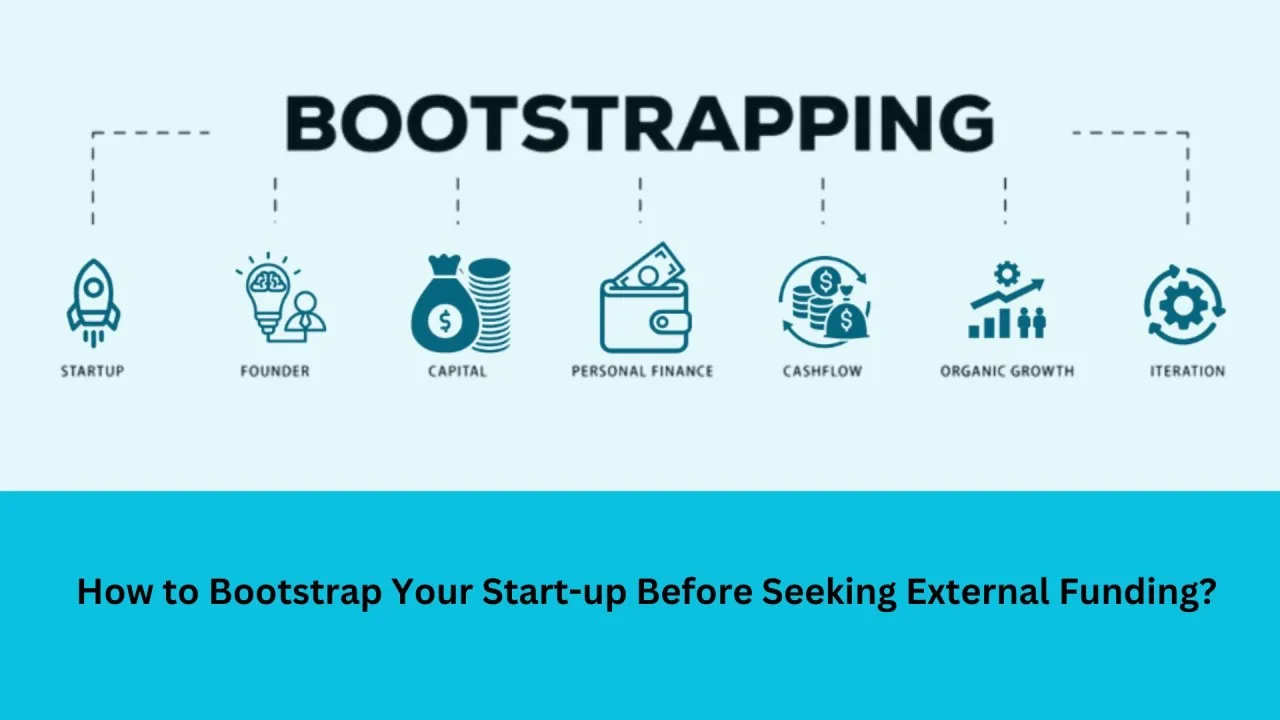
Startup Funding Options for New Entrepreneurs: A Complete Guide
Starting a commercial enterprise is thrilling however it often comes with one main hurdle: investment. Whether you're launching a tech app, a meals truck, or a sustainable style line, turning your idea right into a complete-fledged organization generally calls for economic backing.
The correct information is, new entrepreneurs nowadays have extra startup funding options than ever before. From conventional loans to modern-day crowdfunding and angel investors, there’s a way to suit your commercial enterprise version, industry, and imaginative and startup funding options for new entrepreneurs.
This complete guide will walk you via the pinnacle startup investment options, how every one works, execs and cons, and hints on selecting the right direction.
Read Also: Unlocking Growth: A Complete Guide to Small Business Loans for Startups
1. Bootstrapping: Funding Yourself

What It Means
Bootstrapping is while you fund your startup the usage of private financial savings, profits from a day activity, or revenue reinvested out of your commercial enterprise.
Pros:
Full control over your agency
No debt or equity loss
Forces field and price-performance
Cons:
Limited capital may also sluggish increase
Risk of personal financial strain
Best For:
Service-primarily based corporations, on line startups, or low-overhead ventures.
Tip: Start small, validate your product within the marketplace, then keep in mind scaling with out of doors investment later.
2. Friends and Family
What It Means
Borrowing cash from people you already know can be a short and low-barrier alternative for new marketers.
Pros:
Flexible phrases
Quicker get entry to to budget
Supportive buyers
Cons:
Can pressure personal relationships
Lack of formal documentation might also create misunderstandings
Best For:
Early-stage investment to cowl prototypes, internet site development, or minimum feasible merchandise (MVPs).
Tip: Always create a proper agreement or promissory observe, even supposing the funding comes from loved ones.
3. Angel Investors
What It Means
Angel investors are rich people who invest their personal money into early-degree startups, regularly in trade for equity.
Pros:
Industry know-how and mentorship
Larger funding quantities
Valuable enterprise connections
Cons:
Must surrender equity
High expectations for growth
Competitive to stable
Best For:
Startups with high boom ability, in particular in tech, fitness, or startup funding options for new entrepreneurs.
Tip: Prepare a pitch deck, business plan, and evidence of traction before drawing close angel traders.
You May Also Like: SEO Tips For Naming Business Startup: Building a Brand
4. Venture Capital (VC)

What It Means
VC companies spend money on high-boom startups with the ability for huge-scale achievement. In return, they take fairness and often a seat at the board.
Pros:
Significant capital for scaling
Access to top-tier mentorship and sources
Prestige and credibility
Cons:
Loss of manipulate and equity
Intense strain for fast boom
Not appropriate for small-scale or life-style groups
Best For:
Startups with established product-market match and ambitious scaling plans (e.G., SaaS, biotech, e-commerce structures).
Tip: Focus on building traction, obtaining users/customers, and showing scalability earlier than pitching to VCs.
5. Crowdfunding
What It Means
Crowdfunding systems like Kickstarter, Indiegogo, and GoFundMe will let you raise money from the general public in alternate for rewards, early get right of entry to, or equity.
Pros:
No want to surrender fairness (in praise-based crowdfunding)
Validates marketplace hobby
Builds a network round your logo
Cons:
Takes substantial attempt and advertising and marketing
Platform prices
Not assured fulfillment
Best For:
Creative products, gadgets, video games, or cause-based startups with sturdy visual attraction.
Tip: Craft a compelling tale, put money into advertising earlier than release, and interact with your backers regularly.
6. Business Incubators and Accelerators
What It Means
Accelerators (like Y Combinator or Techstars) and incubators offer mentorship, schooling, and funding in exchange for fairness or participation in applications.
Pros:
Access to mentorship and resources
Networking with fellow marketers and buyers
Credibility boost
Cons:
Competitive admission
Time-intensive packages
Usually fairness-primarily based
Best For:
Startups trying to develop speedy, get entry to mentorship, and refine their service or product with expert steerage.
Tip: Apply to packages that specialize to your industry and provide access to the right networks.
7. Government Grants and Schemes
What It Means
Many governments offer non-repayable presents, subsidies, or tax incentives to startups, especially in sectors like easy tech, health, or innovation.
Pros:
No reimbursement or equity loss
Encourages innovation and R&D
Helps cowl unique mission costs
Cons:
Complex application procedure
Competitive and gradual approval
Restricted use of funds
Best For:
Startups in agriculture, generation, manufacturing, or schooling with a strong social or innovation focus.
Tip: Check national and nation-level programs—examples include Startup India, MSME presents, or SBIR (within the U.S.).
8. Bank Loans and Credit Lines
What It Means
Traditional enterprise loans, lines of credit, or microloans from banks and financial establishments offer funding at a fixed or variable hobby price.
Pros:
No equity dilution
Builds commercial enterprise credit
Fixed reimbursement phrases
Cons:
Requires strong credit score history and collateral
Repayment strain irrespective of commercial enterprise success
Best For:
Established organizations with cash glide or assets to stable loans.
Tip: Comare hobby charges, repayment phrases, and look for startup-friendly banks or NBFCs (non-banking economic corporations).
Read Also: Ex-Military Officials Turn Venture Capitalists Amid $35B Defense Tech Boom
9. Revenue-Based Financing

What It Means
A more recent version where lenders provide capital in exchange for a percent of monthly sales till a hard and fast return is met.
Pros:
No fairness loss
Flexible bills based on performance
Fast get right of entry to to capital
Cons:
Can come to be high-priced with excessive sales
Not perfect for startups with inconsistent income
Best For:
SaaS companies, e-trade businesses, or subscription-based totally startups.
Tip: Ensure your sales circulation is predictable earlier than choosing this version.
10. Strategic Partnerships or Joint Ventures
What It Means
Sometimes funding comes thru a business alliance, in which a larger organisation partners along with your startup for mutual benefit.
Pros:
Access to new markets and startup funding options for new entrepreneurs
Operational support
Funding without conventional loans
Cons:
Shared selection-making
Potential for war if pastimes misalign
Best For:
Startups in production, distribution, or B2B tech solutions.
Tip: Make certain you align on values and expectancies before coming into a partnership.
Final Thoughts: Fund Smart, Not Fast
Securing startup investment is about extra than just earning money. It’s about constructing the proper basis, aligning with companions who percentage your imaginative and prescient, and choosing options that aid your long-time period dreams.
Whether you’re bootstrapping your manner up or pitching to investors, keep in mind: the high-quality funding is the one that allows your business grow without compromising your project or sanity.


